Tadpoles food Archives Amphibian Life
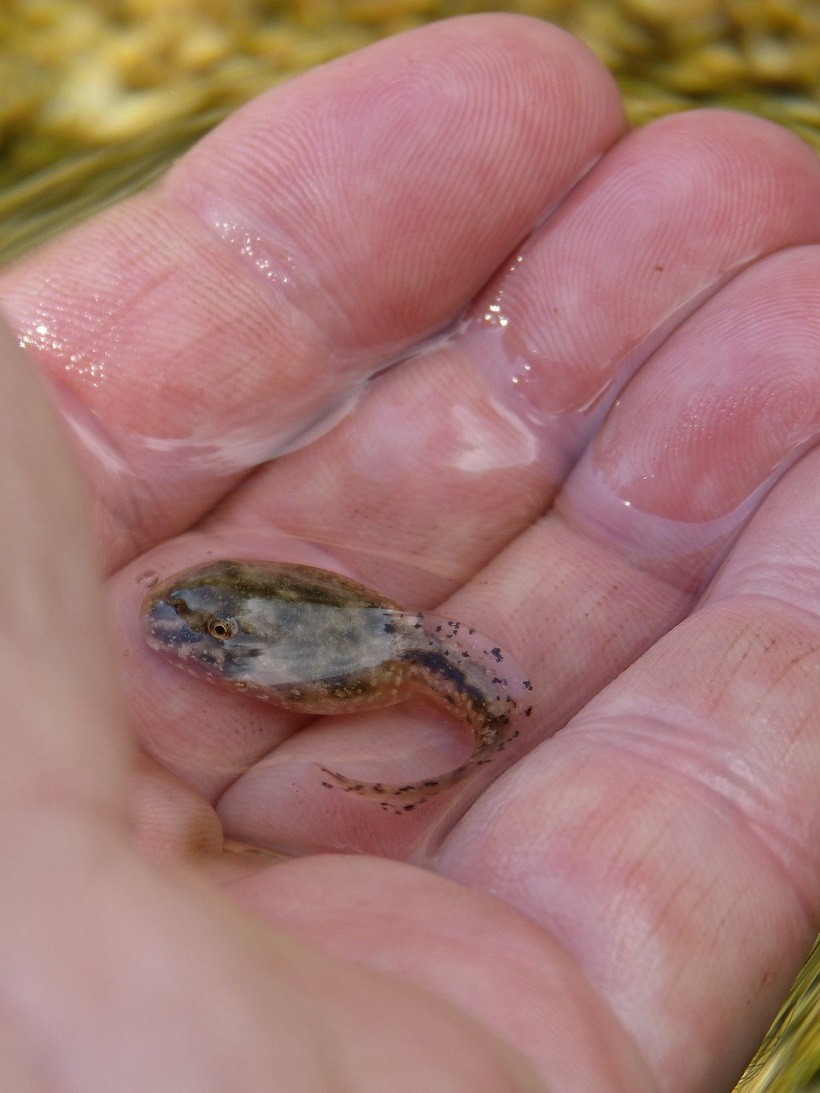
What Do Tadpoles Eat? In Aquarium and In Wild Complete Details
What Do Tadpoles Eat? In general Tadpoles are herbivorous and eat soft plant matter like algae, duckweed and moss.Their diet can vary from species to species. But, the most common species in the United States eat soft plant matter (e.g. tree frog and bullfrog tadpoles).They must feed multiple times a day to get the proper nutrition to continue growing at a quick rate.

Frog monitoring adventures Summer 2011 Nicola Naturalist Society
Tadpoles should not eat fish food, apples, bread, bread crumbs, strawberries, bananas, tomatoes, iceberg or lettuce, grass, meat, processed foods, or canned vegetables. This is due to the lack of nutrients, their inability to digest such foods, or high concentrations of preservatives, sugar, and salt. Here is a non-exhaustive list of things.
/ScreenShot2019-11-21at10.39.56AM-4397b2e2fc6f4b70b358047825f76bc1.png)
what to feed african clawed frog tadpoles vansoffthewallgirls
What Do Tadpoles Eat? A tadpole refers to the larval stage of the members of class Amphibia.Tadpoles of the members of this class are distinct, especially when looking at their morphology and related metamorphosis.. Tadpoles are mostly herbivorous, given that they feed on planktonic plant material in the water.Others are omnivorous.Aside from feeding on plant material, they also feed on small.

Do you ever wonder what do tadpoles eat? Most tadpoles are fully aquatic, but there are some
Yes. Tadpoles do eat dirt. The Kallars dancing frog (of species Micriscilus herrei) have bodies that help them burrow into the sand and gravel. Amphibian biologist Sathyabhama Das Biju discovered The Kallar dancing frogs in the Western Ghats of Southern India. The tadpoles spend their time below ground eating sand and bits of organic matter.

TADPOLES eating a piece of bread in a pond Shot in Cannizaro Park, Wimbledon, UK YouTube
One is that Green Frog (Rana clamitans) tadpoles mostly eat algae. In their samples, approximately 93.5% of their diet consisted of algae. Two, the percentage of their tadpole's diet correlates with the food sources available in the water samples. Algae made up approximately 98% of what was available for the tadpoles to eat.

tadpoles eat spinach YouTube
Feed in small quantities to your tadpoles. Baby spinach - Clean thoroughly and boil for a few minutes. Cut up the leaves into tiny bits and let them float on the surface of your tadpole tank. Lettuce - Avoid using iceberg lettuce as this is very low in vitamins and minerals. Try to opt for romaine lettuce.
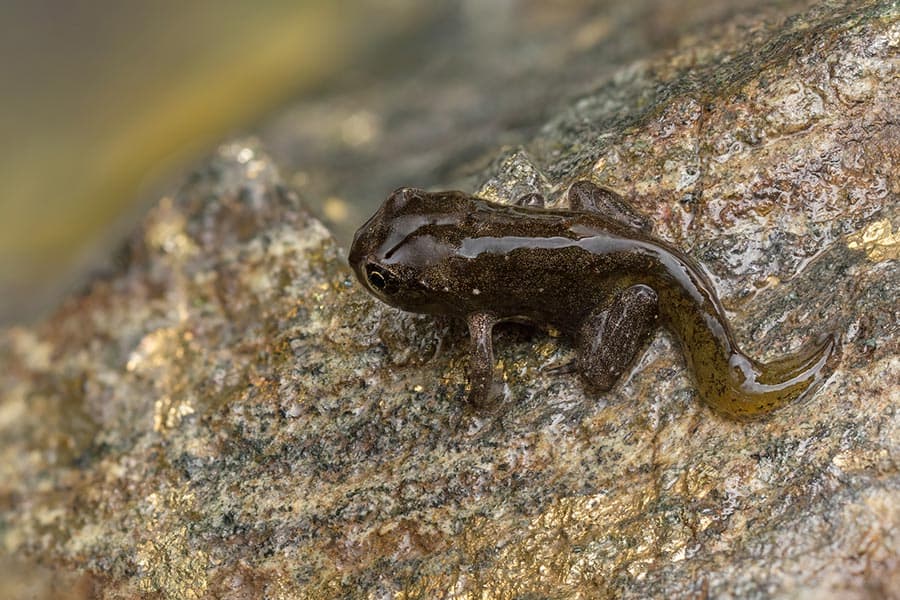
What Do Tadpoles Eat? (Tadpole Nutrition 101) Reptiles Life
2-4 weeks: This is the final stage of rapid growth for most tadpoles, and they will begin to eat more insects and insect larvae and less plant matter. They can still be fed on small amounts of pellets, algae, and plant matter, but you can begin adding brine shrimp flakes, bloodworms, and crickets.
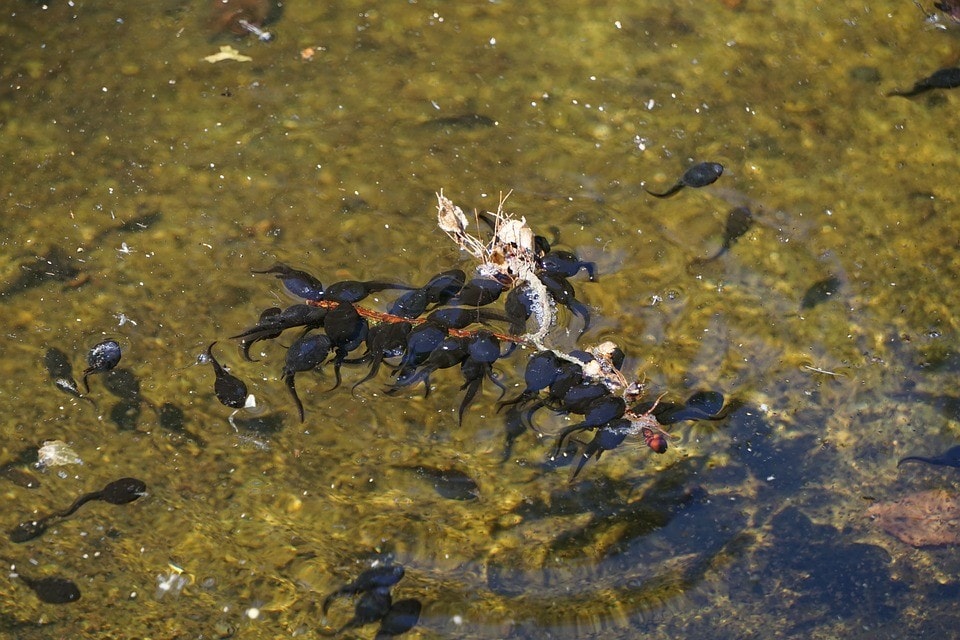
What Do Tadpoles Eat in the Wild & As Pets? VetApproved Nutritional Analysis Pet Keen
While the tadpole is 1 to 2 weeks old, feed them Lettuce, broccoli, and other variety of greens available at every regular household. Tadpoles at this stage can also eat algae flakes or a minimal amount of fish food. Further from 2 to 4 weeks, tadpoles must be feed insect larvae and insects. Because this is a crucial phase for their growth.

The Gross Diet Of Tadpoles Why They Eat Dead Skin Heidi Salon
What to feed tadpoles. If you bring home eggs, you'll be able to watch the entire frog-rearing cycle. Tiny tadpoles will hatch, and they'll be extremely hungry. Luckily, their first food source is right there in the tank. They'll eat their own eggs to start, which contain some vital nutrients that their little growing bodies need.

List of Things That Tadpoles Eat Sciencing
What Do Tadpoles Eat in the Wild? In the wild, tadpoles are opportunistic feeders, which means they will eat almost anything they can get into their mouths. Unfortunately, this means we are not 100% sure about everything that they eat. However, through scientific study, we have figured out the basics.
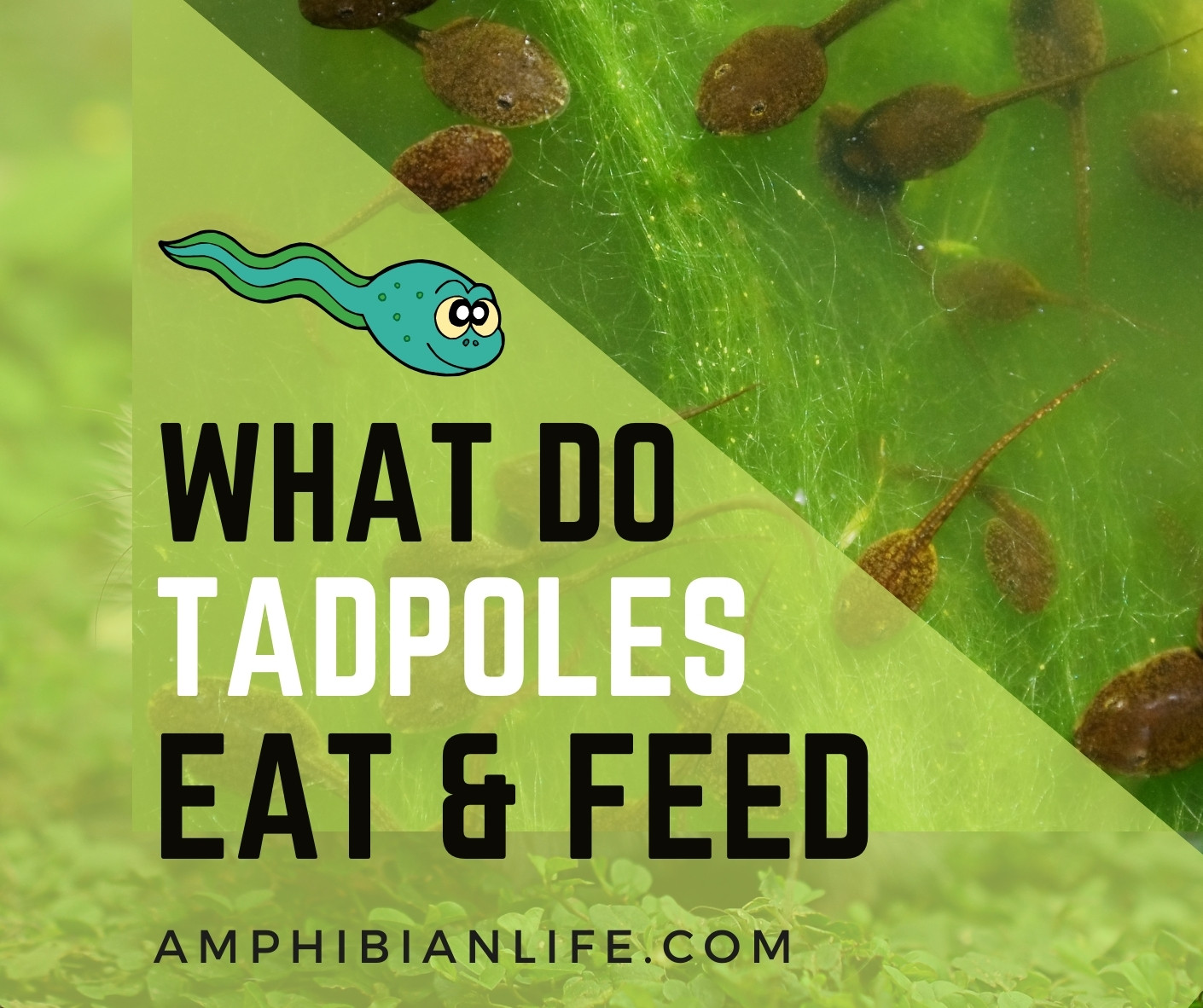
Tadpoles food Archives Amphibian Life
What do Tadpoles Eat in Nature? Tadpoles hatch in freshwater ponds, puddles, and streams. Most tadpole species go through herbivorous to carnivorous diet stages while deriving nutrition from plants, organic matter, insects, and microorganisms.

What animals eat tadpoles scienceforyou
Remove any leftover food from the feeding as it will rot and contaminate the water. It is recommended to feed once or twice a day in small portions as long as most of the food is being eaten in one sitting. It should also be noted that tadpoles will eat various types of fish food, like flakes, pellets, and wafers.

Documentary Gives Us A Closer Look Into The Fascinating Life Of Tadpoles The Rainforest Site News
Tadpoles, like many other freshwater animals, are omnivores throughout most of their life. The most common foods they'll come across are vegetation, dead insects, water striders, and sometimes small fish. Their diet changes again as they develop into frogs/toads, and they become almost exclusively carnivorous.

What Do Tadpoles Eat? Fruits, Vegetables, And More Aquariadise
Tadpole Cannibalism Tadpoles will not eat each other if presented with alternative food sources, such as brine shrimp. Лисицын Павел, CC BY-SA 4.0, via Wikimedia Commons. When natural resources are sorely limited, tadpoles may sometimes resort to eating one another!It's important to remember that these tiny creatures, like most wild animals, will do whatever they can to survive.
Tadpoles eating a slug. r/natureismetal
Over the coming days and weeks, tadpoles will also eat the roots and leaves of other aquatic plants like duckweed. Once they are large enough, tadpoles will begin to eat more animal matter. Common prey include small insects such as aphids and fruit flies. They will also target grubs, worms, and other insect larvae.
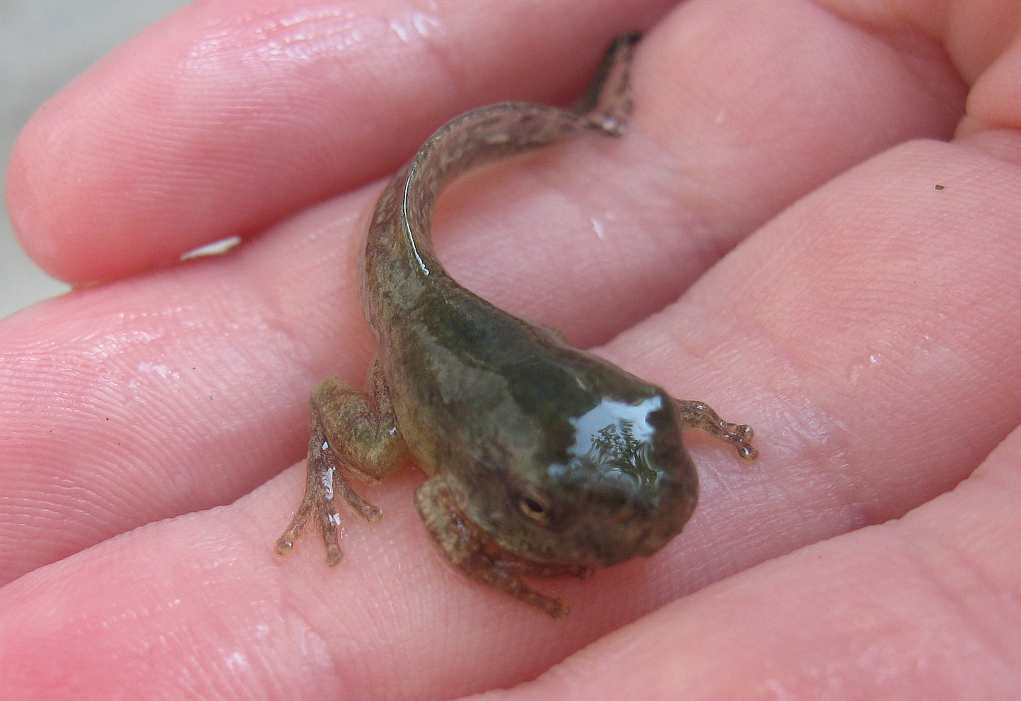
Exotic Eating Tadpole Tuesday 22nd
Do tadpoles eat mosquito larvae? Once they are over 6 weeks old or have legs, tadpoles develop a carnivore appetite and eat mosquito larvae and mosquito eggs, as well as dragonfly larvae, dragonfly eggs, fish eggs, frog eggs, other frog tadpoles, redworms, aphids, and ants.